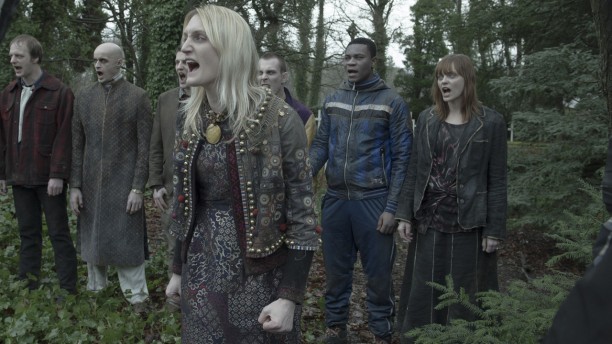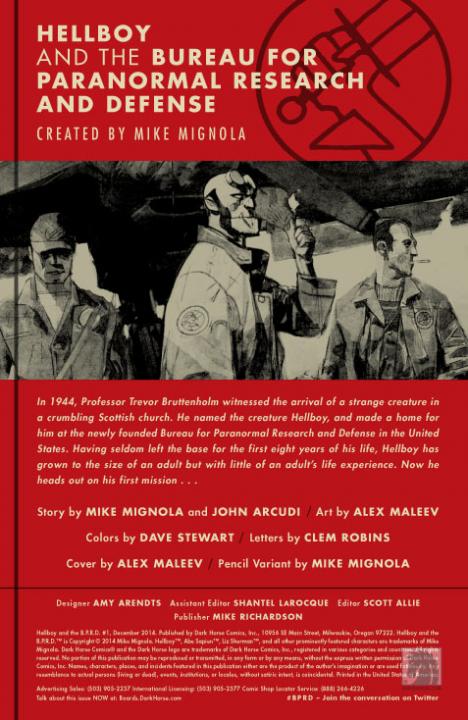In the Flesh, Season 2: Episode 6 – “Episode 6”
Written by Dominic Mitchell
Directed by Alice Troughton
Awaiting renewal/cancellation announcement
And so the game of “Who is the First Risen?” continues and makes those of us with assumptions look like idiots. Appropriately, this finale doesn’t definitively say that Kieren is the man many people are looking for, nor does it definitively say Amy wasn’t that person and that the Second Rising is all just a bunch of nonsense. It’s not unusual to have many questions about this kind of plot detail, but the fact that that is such an important response to this finale shows where Dominic Mitchell has taken In the Flesh in its second season: slightly away from the family drama that made its first season so moving and more into the territory of expansive world- and myth-building. Based on that shift, “Episode 6” is actually a bit more of a turn back to what the first season was like, which is why I think it works much better than it would have if the action centered around only plot points and questions that needed answering.
The two moments (or series of moments) that best exemplify and define that are the ones in which Simon saves Kieren and receives gratitude from Mr. Walker and everything having to do with Philip’s response to Amy’s death. When there are a bunch of moving pieces at work and the dramatic pace speeds up around those, it can be difficult to pinpoint the heart and soul of a story, which are these characters in these situations in this case. Mitchell, though, clearly understands what In the Flesh is best at when it comes down to the wire. I’m not so sure we needed Kieren’s family to go through similar motions again this year by questioning their feelings towards him (especially since there wasn’t a hint of the lingering effects of Kieren’s suicide this year, and thus Rick), but the culmination here, which is Mr. Walker shaking Simon’s cold, dead hand, justifies the means. Also playing key factors in that scene are how Simon and Jem make certain decisions, one choosing not to kill someone he finds so magnetic and the other ultimately taking her brother’s side instead of giving into her previous shoot-first attitudes when it comes to rotters.
Philip’s story, however, is much more painful and affecting. He’s quietly turned into the MVP of the whole season by undergoing a wonderful arc dotted with moments of tenderness and a willingness to put aside the things that can blind someone in an attempt to see what is “right” based on personal code. That arc has led him into a beautiful, short-lived relationship with the series’ most problematic main character, which actually helped solve some of the issues surrounding drawing interesting story out of Amy. He gets a nice nod from his mother, who tells him he’s done well by landing Amy, and even if the tragic outcome is telegraphed a bit, their scenes together and Philip’s scenes after she’s died have the most energy to them in the entire episode. Little things, like Philip not leaving the stuffed tiger in her grave because it’s a memento he wants to cling onto for a while longer, make that connection and heartbreak totally believable. What the writing room decides to do with Amy, I’m a little bit hesitant about. But, in the space of these six episodes, they managed to turn her difficult-to-write-for charisma into something much more digestible in the form of a character who really had something to lose and wasn’t as carefree as she thought she was. There’s that aspect to zombie series where you can cheat the death of characters depending on the lore, and I’d be completely surprised if Amy is not brought back, but in a parallel universe where this was the last we see of her, the sendoff is perfect–right down to her outrageous dress code demands for her funeral.
Outside of this material, there are some things that feel less resolved or slightly filler. The semi-conclusion to Maxine’s arc doesn’t exactly payoff all the great and horrible material she’s been given all season. She still gets to be the antagonist, of course, by killing Amy, but she gets taken down laughably easily and removed from the picture without much fanfare for such a strong character. Gary, too, winds up being the source of the least interesting story, which could have been predicted a mile off. At the very least, though, there was an attempt to build on supporting characters from season one. It’s just a shame this one ended up being such a dud compared to someone like Philip, who became one of the series’ most consistently fantastic inhabitants.
So, now we play a new game of waiting to see what gets done with In the Flesh. This extended sophomore effort didn’t manage to hit even the ratings low of the first season, which is less of an issue in the UK than it is in America. But BBC America also made the decision halfway through the season to air episodes an hour later, after Graham Norton’s show. That’s certainly not a good sign when 9 o’ clock is the most important timeslot on Saturday nights. In its favor, however, the series and Dominic Mitchell picked up some BAFTA awards (sadly, not for the series’ ridiculously good music, too), thus making its chances for renewal in its native country slightly better and, by extension, probably finding a place on BBC America’s summer-ish schedule at some point. There’s certainly plenty left to explore here, and even if the series moves further down the path of plot development, this world is one of television’s most interesting. In any case, it’s been great to see more of it this year and to write about it. Thanks for reading along. Hopefully, we’ll be doing this again next year.
– Sean Colletti




